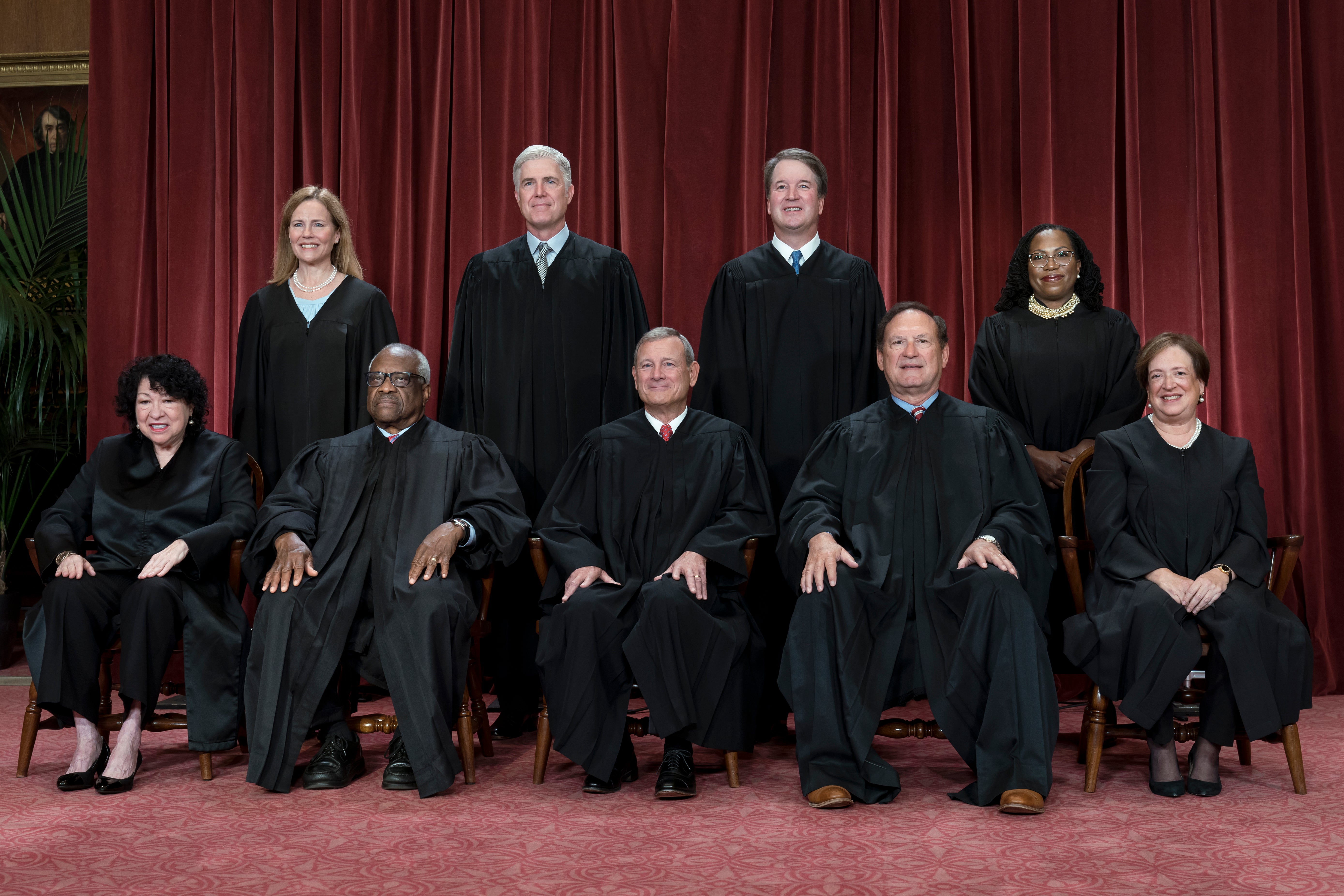Supreme Court dismisses disability rights case as moot
Original question presented in the case Acheson Hotels LLC v Laufer had potential to limit lawsuits challenging accessibility
Your support helps us to tell the story
From reproductive rights to climate change to Big Tech, The Independent is on the ground when the story is developing. Whether it's investigating the financials of Elon Musk's pro-Trump PAC or producing our latest documentary, 'The A Word', which shines a light on the American women fighting for reproductive rights, we know how important it is to parse out the facts from the messaging.
At such a critical moment in US history, we need reporters on the ground. Your donation allows us to keep sending journalists to speak to both sides of the story.
The Independent is trusted by Americans across the entire political spectrum. And unlike many other quality news outlets, we choose not to lock Americans out of our reporting and analysis with paywalls. We believe quality journalism should be available to everyone, paid for by those who can afford it.
Your support makes all the difference.In its first ruling of the term, the Supreme Court has dismissed the disability rights case Acheson Hotels LLC v Laufer, declaring it moot.
In a 9-0 decision, justices said that due to a series of unusual changes in the case, the original question presented was no longer relevant because the original case between the two parties had been dismissed.
The case was raised by Acheson Hotels LLC, which formerly owned and operated a Maine-based hotel that was sued by Deborah Laufer, a woman living with multiple sclerosis, for failing to provide accessibility information on its website.
Acheson Hotels claimed that Ms Laufer did not have standing to sue them because she had no intention of visiting their hotel and had filed more than 600 similar lawsuits against hotels across the country.
Ms Laufer said her suit was part of her greater effort to ensure hotels were acting in accordance with the Americans with Disabilities Act (ADA).
The court initially added the case to its docket in March intending to answer whether or not Ms Laufer had standing to challenge the hotel’s failure to provide disability information. But over the summer, Ms Laufer filed a motion to have the case dismissed after her former attorney was suspended from practicing law for defrauding hotels.
Ms Laufer said she filed the motion to avoid making her suit appear less legitimate in her fight to advocate for people with disabilities. She asked the court to not use her case to rule on an important question.
Additionally, the Maine hotel added the missing information about its accessibility onto its website and Acheson Hotels LLC no longer owns or operates the hotel in question. However, they asked the court to issue a ruling to prevent people from filing mass lawsuits.
In the majority opinion, authored by Justice Amy Coney Barrett, justices acknowledged Acheson Hotel’s concerns but said Ms Laufer’s desire to abandon her case did not appear to be “an effort to evade our review.”
“[Ms Laufer] voluntarily dismissed her pending ADA cases after a lower court sanctioned her lawyer. She represented to this Court that she will not file any others,” Justice Barrett wrote. “Laufer’s case against Acheson is moot, and we dismiss it on that ground.”
The court remanded the case to the First Circuit Court of Appeals instructing it to dismiss the case as moot.
Justice Barrett added that the court may exercise its discretion “differently” in future cases.

The justices’ decision reflects similar questions and debates the justice brought up during the October oral arguments.
Justices Sonia Sotomayor and Clarence Thomas questioned whether deciding on the case was worth it given the changes it went through.
Notably, Justice Barrett told Acheson’s lawyer, “You’re asking us to take on extra work to end a case when we all agree it has been ended.”
Justice Samuel Alito called the case “dead as a door nail.”
Justice Kentaji Brown Jackson and Justice Thomas concurred with the opinion but for different reasons.
Justice Thomas agreed that the court did not answer the original question presented because Ms Laufer dismissed her case but said he would have answered the question because the court has “the authority to do so.”
“I conclude that Laufer lacks standing,” Justice Thomas wrote.
In a concurring opinion, Justice Jackson agreed that the case was moot but disagreed with its decision to vacate the First Circuit’s judgement.
“In my view, when mootness ends an appeal, the question of what to do with the lower court’s judgment, if anything, raises a separate issue that must be addressed separately,” Justice Jackson wrote.
Subscribe to Independent Premium to bookmark this article
Want to bookmark your favourite articles and stories to read or reference later? Start your Independent Premium subscription today.

Join our commenting forum
Join thought-provoking conversations, follow other Independent readers and see their replies
Comments